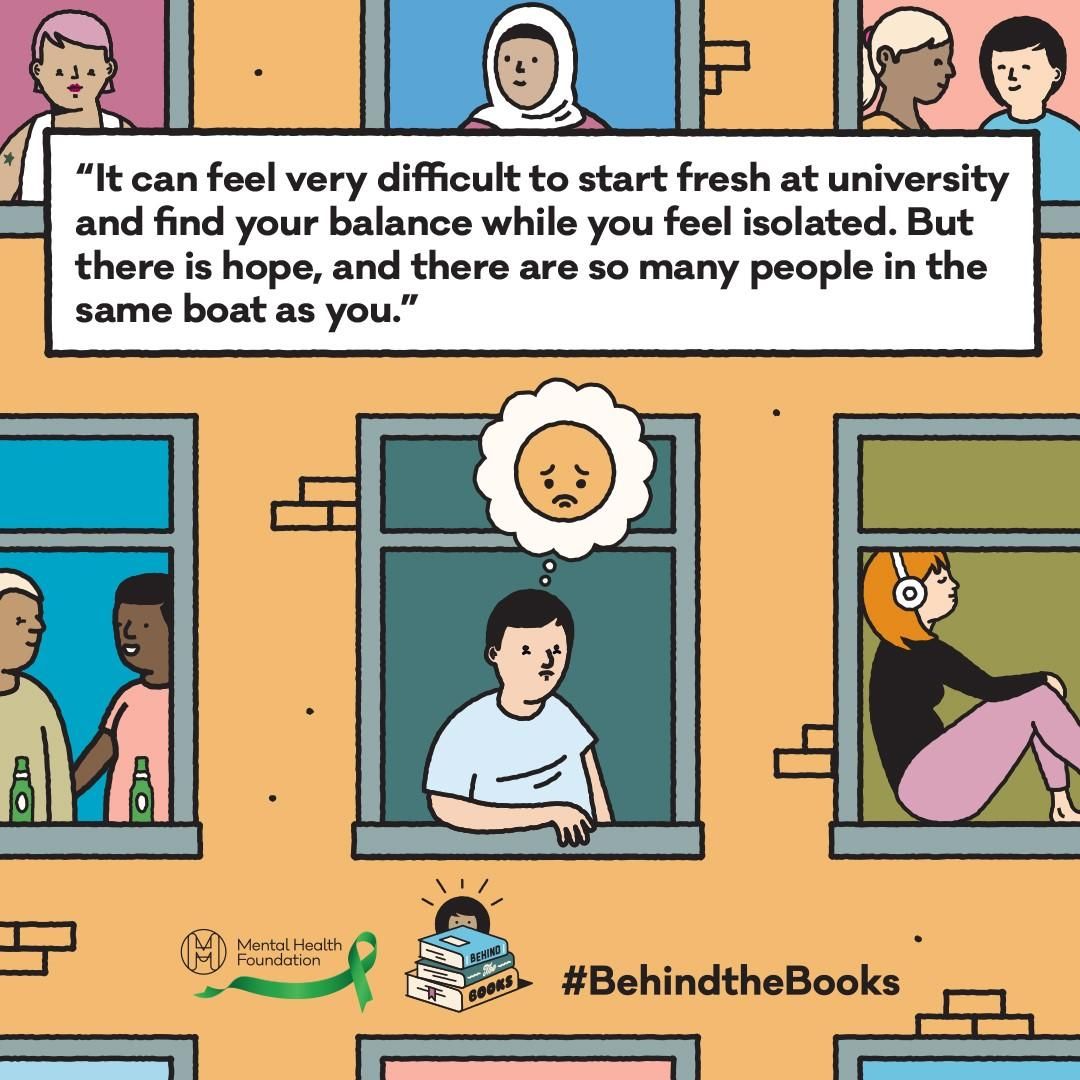University student Eloise shares tips about making and maintaining friends when starting university.
Making friends is never easy in any situation, especially in the post-Covid generation, and maintaining them is another story. We adjusted to seeing people on screen and meeting through online situations, only to be thrust back into overly social settings that have all our social batteries exhausted. Paired with the increase in mental health problems such as anxiety from exams, sometimes we feel like we can’t express problems to the ones we end up closest to. You might find that you don’t feel like yourself and your friends might ultimately get to know a person that you’re not, that’s how I felt.
Helping a friendship flourish and grow is much like tending to a plant, and this is the kind of motif I like to use. Maintaining relationships requires care, patience, compassion, but also time away and for yourself.

Beginning new relationships
The most important part about starting a friendship is that you feel comfortable with them. It is completely understandable that you might be nervous or anxious about beginning new friendships, so having some things in common such as shows you watch or things you enjoy doing is always a nice thing to circle back to if you begin to feel anxious. Good ways to meet new friends could be through:
- Freshers group chats or social media accounts. These can usually be accessed after you receive results. They are a fantastic way to help other new first years connect. This way, you can begin getting to know people on your course and build the foundations of friendships.
- Societies. Joining and getting involved in their activities can be a wonderful way to meet new people. You can be consistent with the friendship by having weekly or monthly meetings in societies and can join them in social events. Just remember not to join too many at once, as you may become overwhelmed. Find one or two that you really enjoy, so that you can keep commitments balanced.
- Flat buddies. Living with people is a great way to get to know them and their habits personally and create good starting points for friendships further on – you may choose to move into a house with them come the next year.
- Some other options may be finding friends on the same course as you, going through your university’s internship or volunteering programmes, or even co-workers at part-time jobs!
Friends are everywhere, and often no matter where you are, you will always have someone who needs another person to rely on.

Helping friendships flourish
Friendships are important to maintain and flourish, to keep things healthy and safe. A friendship will bloom on its own, but negative thoughts and insecurities can get in the way of this. Here I have also shared some tips for how to best strengthen and blossom your friendships:
- Be available for your friends, but also for yourself. Often, we will see our friends opening up to us when they feel comfortable about life issues or their mental health. It is important that we not only are patient with them when they need space and offer our support, but also know when to set our own boundaries and take a step back.
- Fuel the connection. Do things that you all enjoy, or compromise if you are having difficulty finding something you all enjoy. Sometimes we just cannot bring ourselves to go out, even if that first year of university is all about getting out there and having fun. Consider inside activities such as board games, movie nights or go shopping together. While it's great to be available for your friends, don't forget to take time for you, too.
- Be kind and respectful. Caring for and sustaining a friendship always involves listening and honouring what they tell us, even if we don’t agree with it or immediately have solutions – most of the time, your friends will just want someone there to talk to. We should always have the opportunity to count on each other, especially in a world like today where we will frequently see our friends struggling or in need.
- Accept that friendships and people change. More likely than not, the friend that you first met at the beginning of your university year will be somewhat different many months later whether for good or bad. When people become more trusting around others, they will show a different side to themselves. It is important to embrace this new side of your friend, or if negative, be ready to discuss things and/or let them go. Having friendships with people sometimes doesn’t work, but it should never deter us from continuing to create new ones.
- Be in the moment. In new situations, we often want to go on our phone or look busy if we are feeling socially anxious. Try to avoid being on your phone and be present in the situation. Making eye contact and having open body language shows people you are listening and are engaged in what they are saying.

Moving forward
Like a plant, friendships need to be maintained consistently or they will wilt. Check in with your friends to see if they need alone time, some support, or something to do to distract them. Here are some more tips for keeping your friends happy and healthy.
- A level of trust and compassion should always be held when having friends. Trust is reciprocal, which means if you believe your friendship is at its best, things can be shared and told to you. It is imperative that we also trust and share back, to keep that plant in full bloom. Feedback is the sign of a trusting relationship, so it is good that your friends will want to confide in you and share things.
- Include yourself in the flourishing of the friendship. Friends are valuable and good to have, but you cannot be there every step of the way. Everyone should be their own best friend, and when you step in to fulfil a friendship role, it should never be exhausting or feel as if you are dragging your feet. Some good ways to take time for yourself can be having self-care days, doing things that you enjoy and keep you healthy, or doing meditation. If at all you are concerned about your mental health when it comes to friendship, the MHF have some key pointers to help you support yourself.
- Be a friend to yourself as much as you are to others. By keeping a level of companionship and security with people, listening, and being active in your friends' lives, you are being a great friend. As Mother Teresa says, “let no one ever come to you without leaving better and happier.” But remember, you can’t be a great friend to others if you are not a great friend to yourself! Make sure you are looking after yourself, the same way you are looking after your friends. Take some time alone if you need it.

Related content
Behind the Books campaign
Our #BehindtheBooks campaign aims to help university students talk about their mental health, to realise when they’re struggling, to provide tips on ways to cope and to normalise the ups and downs of uni life.

Morgan's story: My experience with shared housing and feelings of isolation at university
Morgan is a current university student who had a difficult time when living in shared university housing. Morgan’s talks about her experience to reassure you, you are not alone if you are going through similar struggles.

Shannon's story: the power of mentorship in feeling connected to university
Shannon began her university studies during the Covid pandemic. This had a large impact on her feeling connected to the university and her peers. In this piece Shannon writes about how creating a mentorship network helped her feel connected and empowered to others.

